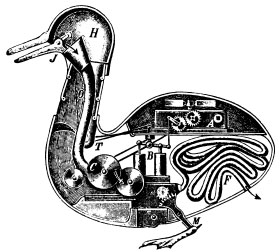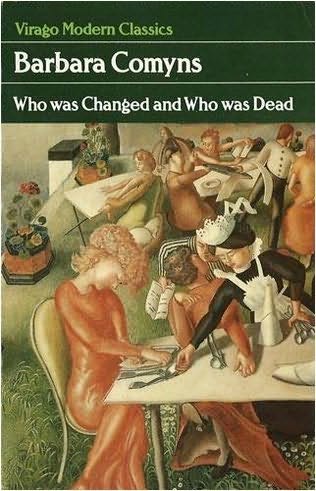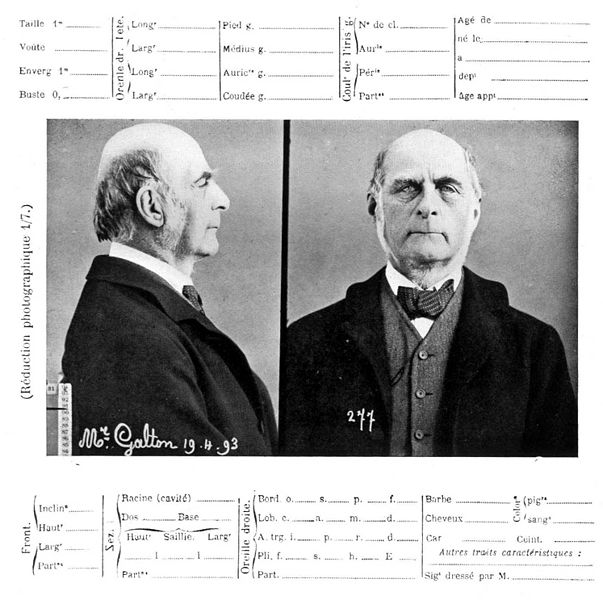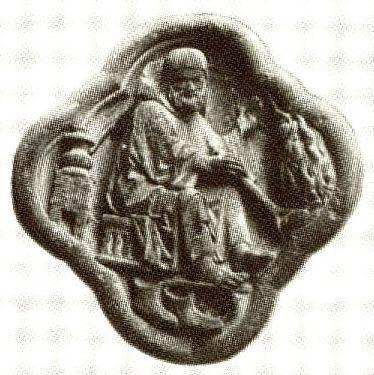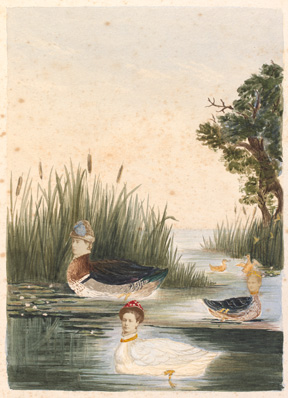It is always useful to be reminded of Vaucanson’s robot duck. So go and read Heather McDougal at Cabinet of Wonders.
Monthly Archives: July 2010
Anathema
I don’t know about you, but increasingly I find myself compelled to cast anathemas, often at bus stops, supermarkets, and other sites of close contact with one’s fellow citizens. But getting the tone right can be the devil of a job. One wishes the curse to come across as neither deranged nor weedy, but rather as a considered, cogent, rational, searing, and – above all – unarguable response to the situation.
How pleased I am, then, to have discovered this splendid outburst from Austin Osman Spare:
“Your theology is a slime pit of gibberish become ethics. In your world where ignorance and deceit constitute felicity, everything ends miserably, besmirched with fratricidal blood.”
It is from his book Anathema Of Zos, A Sermon To The Hypocrites (1927) which I am clearly going to have to read, possibly even learn by heart. Further reading here and, enticingly, the opportunity in a couple of months’ time to see an exhibition of Spare’s work.
The Mystic Woohoohoodiwoo Experience
You would be surprised how often I am asked by readers if it possible to somehow experience the mystic woohoohoodiwoo conjured up by the Woohoohoodiwoo Woman in the deep dense weird woods, without actually having to enter the deep dense weird woods for a moonlit encounter with the Woohoohoodiwoo Woman herself. In part, your surprise would be that anybody could manage to articulate that question on an empty stomach. Until now, my standard answer has been “No, it is not possible to somehow experience the mystic woohoohoodiwoo conjured up by the Woohoohoodiwoo Woman in the deep dense weird woods, without actually having to enter the deep dense weird woods for a moonlit encounter with the Woohoohoodiwoo Woman herself,” although depending on how much time is at my disposal I might just say “No” or even slap the importuning reader about the head with the outer packaging from a carton of smokers’ poptarts.
I say “until now” because, thanks to David Thompson, I have learned of the activities of a certain Erial Ali. Click on this link, scroll down, slowly, slowly, and be engulfed in mystic woohoohoodiwoo!
Key’s Cupboard
Mr Key is delighted to announce that his global domination schemes continue apace. Now, in addition to this very Hooting Yard you are reading, the radio show and the vast archive of podcasts available from ResonanceFM, he has found another berth on what our Flemish pals call het internet. Very sensibly, the quintet of indefatigable blogpersons who have created The Dabbler : A Culture Blog have invited your favourite impoverished scribbler to occupy his own cupboard there.
Postages will be placed in Key’s Cupboard once a week, probably on Fridays, and include a mix of brand new stuff written exclusively for The Dabbler and forgotten items long buried in the Hooting Yard archives.
So hie ye over there right now, and make sure you read all the other interesting dabblings. (I particularly recommend the item about the Cobham Cuckoos.)
Lupins?
Discouraging news reaches me about Dennis Beerpint. The weedy poet has, it seems, cast off his beatnik persona. In an interview with the magazine Ex-Beatnik Poets Speak Out! he says:
“People will accuse me of selling out, but quite frankly I am sick and tired of sticking it to The Man, you dig? There’s no money in it. I want to be a people’s poet, like Carol Ann Duffy or Ian McMillan, but I am neither the Poet Laureate nor an irritating professional northerner. So when the Co-op offered me the position of surrealist-in-residence, I jumped at the chance.”
“Surreal” is a much-abused word these days, but it is surely appropriate to describe Beerpint’s first effort on the Co-op’s behalf. He was asked to add an intriguingly madcap line to the allergy advice on their jam doughnuts, and came up with this corker:
These products have been prepared in an area that handles the following ingredients: Celery, Crustaceans, Fish, Lupins and Molluscs.
Clearly, though he may indeed have “sold out”, Dennis Beerpint has not lost his mojo.
NOTE : Many thanks to Gaw for drawing this to my attention.
Who Was Changed And Who Was Dead
Nige has a postage about Barbara Comyns, which served to remind me that Who Was Changed And Who Was Dead (1954) is one of my favourite novels, and without any doubt the finest book in the popular outbreak-of-ergot-poisoning genre. I have not reread it for years, so have removed it from the shelves in readiness.
Those who like to delve into such things may wish to know that I consider it an important influence on my own scribblings. How could it not be, when, leafing through it just now I note sentences such as:
There was a great smell of mud, and it was the first of June.
We always have cocoa after a thunderstorm.
The village bachelor, drink-sodden Lumber Splinterbones, usually ambled along to Grandmother Willoweed’s birthday party.
Dennis was frightened of cows
and there should now be a question mark to end this sentence on a grammatically sound footing, thus… ?
Ca Ne Plane Pas Pour Moi!
Pansy Cradledew is in distress. In a letter smudged by her tears, she wails:
Another of my sacred cows has been desecrated. How could Plastic do this (or, more to the point, NOT do this!) to us?
If you feel strong enough to cope, you can find out the reason for Pansy’s desolation here. I suppose there is a crumb of comfort in the Nixonian closing words “I am an artist, not a crook”.
Pippy Bag Project
Here is another project to keep the tinies occupied during the summer holidays.
Get your pippy bag, and cram it full of kapok. Using a length of butcher’s string, or an old bootlace, tie the pippy bag tightly closed so that none of the kapok will fall out. Now stick innumerable pins into it, and voila! you have a splendid homemade pin cushion.
It may be that your interests do not run to needlework or embroidery, in which case you will not find much use for a pin cushion. So let me show you how easy it is to turn it into something far more exciting!
Fashion a few pipe cleaners into the basic shape of a human body – arms and legs and torso. Then poke this into your pin cushion, which serves as the head. Depending on the size of your pippy bag, the proportions will be all wrong, and it will look a bit like a three-dimensional stick person with a huge bloated hydrocephalic head, but don’t worry about that. Think of it as a voodoo dolly.
The next thing you need to do is to force your mind into believing that the dolly is genuinely imbued with the spirit of a real person, just as Francis Galton convinced himself that Mr Punch was a god. Bear in mind that the dolly has innumerable pins stuck in its head, which almost guarantees that the person you choose, whether it is David Blunkett, for example, or Gore Vidal, will shortly afterwards have their actual head attacked by a swarm of bees.
Neither Dobson Nor Blötzmann Nor Joost Van Dongelbraacke
“He was an expert in many subjects and intervened widely in others. Among his contributions to learned journals were papers on meteorology, navigation, surveying, anthropology, archaeology, painting, photography, the use of spectacles by divers, ultrasonic whistles, diet fads, currency reform, visions, corporal punishment, the ideal length of rope for hanging people, the flashing of signals to Mars, and dozens of other topics. Almost as numerous were his inventions, ranging from advanced scientific instruments to gadgets for personal convenience. At the age of thirteen he designed a steam flying machine, followed by an hour-glass speedometer for bicycles, and, in later life, a periscope for seeing over the heads of crowds. It was used for viewing processions, of which he was particularly fond, in conjunction with a wooden brick, wrapped in cloth and tied to a string so that it could be lowered to the ground for standing on.”
I know what you’re thinking. Did Dobson and Blötzmann spawn some kind of love-child (perhaps using a technique concocted by the latter)? But no. Apart from anything else, that would be chronologically incoherent, like a leech doctor with a brain scanner. It is in fact Francis Galton, as described in Eccentric Lives And Peculiar Notions by John Michell (1984). There is a touch, too, of Joost Van Dongelbraacke, the suburban shaman. Michell notes that Galton
“was strongly religious, but the only type of worship that appealed to him was the spontaneous variety he had seen among the Africans. He considered that their chants, dances and fetish worship expressed the genuine religious spirit of the natural man. As usual, he put that belief to practical test. Looking round for the least worshipful object he could find, he hit upon the comic figure of Mr Punch, and forced his mind into believing that it possessed divine powers. The experiment succeeded. He came to experience ‘a large share of the feelings a barbarian entertains towards his idol’, and for a long time he was unable to look at Mr Punch’s grotesque features without a feeling of reverence.”
Summer o’ Cartographic Excitement
Readers with school community education hub-aged tinies will be keen to find activities to entertain and instruct their nippers through the summer holidays. Surprisingly few children today take as great delight as Little Ruskin did in jumping off a box, so that splendid hobby is unlikely to occupy all their time in the coming weeks. Thus I am pleased to announce Mr Key’s Summer Holiday Cartographic Excitement Project.
The idea is that, when the weather is foul or the bliss of frolicking outdoors begins to pall, your tinies can busy themselves drawing maps of Hooting Yard. First of all, of course, they will have to be familiar with all the tales and investigations posted here, so I suggest you make them click on the “Prose” category (in the Archives) and read everything, possibly twice. Then give them paper and pencils and crayons and pots of paint and so on, and have them create a map, or maps, which accurately, or indeed inaccurately, represent the settings of the stuff they have read. They may wish to draw a detailed street map of Pointy Town, or the branch line out to O’Houlihan’s Wharf, or even something as ambitious as the entire landscape, showing Sawdust Bridge and Bodger’s Spinney and Pebblehead’s “chalet o’ prose” and Scroonhoonpooge Farmyard and the running track where fictional athlete Bobnit Tivol sprinted round and round and round under the watchful eye of Old Halob and the dingly dell hotel carpark and the bottomless viper pit and so on and so, exhaustively, forth.
That should keep them busy until summer’s end, at which point they, or you, can scan their maps and send them to Mr Key, who will display each and every one received here on the Hooting Yard website.
The Hermit Of The Dingly Dell
I am the hermit of the dingly dell. Ach God!, it is the dingliest of dells. That is why I chose it for my hermitage. Its glades and dingles are abundant with those things which provide for a hermit’s simple needs, such as nuts and fruits and rills of fresh water. Every now and then, in a rill, a fish might swim by. Deploying my net with practised skill, I catch the fish. Then I will sit before a fire toasting the fish upon a fork, my hand raised to sleet and sun, my shoes doffed to oblivion, like the hermit in the song by the Art Bears, himself inspired by the hermit carved in stone on the stylobate of the cathedral in Amiens.
I have considered carving myself in stone, to pass the time in the dingly dell, but I do not have the proper tools. I suppose I could rub and rub at a pebble, every day, persistently, and carefully, for years, but even then it would be very difficult to get the proper finish. Still, it is a project I might yet embark upon, for the days and nights are long in the dingly dell, and once I have gathered my nuts and fruits of a morning, and made a note of the reading on the rain gauge hanging from a branch of the mighty laburnum, I must always be on my guard against the devil, who, we know, makes work for idle hands.
The devil has appeared to me in many guises since I came to my hermitage in the dingly dell. At first he took the form of a vaporous mist. This suggested to me that his powers were weak, and I laughed at him, loudly, waving my arms about to disperse him. But then he grew able to inhabit solid forms, albeit tiny ones, such as an ant or a twig. Lately things have entered a dangerous phase, for the devil has entered the body of a squirrel, and the dingly dell is teeming with squirrels. Shunning the company of my kind, as I do, being a hermit, I have learned to commune with squirrels, but now I must shun them too, or risk engaging with Beelzebub himself.
Were that to happen, I might be forced to take refuge in the dingly dell hotel. In the normal run of things, of course, I avoid it. Sometimes, while gathering my nuts and fruits, I come close to the hotel car park, and hide behind a shrub. I have seen the major domo of the hotel striding purposefully across the car park, even making his way into the dingly dell itself, where he stops and sits on a log and smokes a cigarette. This is disturbing, but I am not so neurotic as to think he is in league with the devil, even though squirrels do approach him, tentatively, hoping perhaps for a nut or two. But the major domo is not a man for nuts, he just smokes his cigarette, and occasionally taps out messages on a Blackberry. Not the kind of blackberry I would have for my supper, after some toasted fish, I should add. His is an electronic device, which beeps from time to time while he smokes. It is most irritating, but I dare not rush out at him from behind my shrub and snatch the thing from his hands and stamp upon it until it is crushed to smithereens, which is what I would like to do. For if I did that, I would betray my presence in the dingly dell, and it would no longer be my hermitage. I would probably have to talk to the major domo, to explain myself, and I am not sure I can remember how to speak in a way that is understood, unless I am speaking to a squirrel.
And until the devil shifts shape, I cannot even talk to the squirrels. What is to become of me, here in the dingly dell? I shall make a note of the registration plates of the cars in the hotel car park, and compare the numbers with the readings from the rain gauge, to discover if there is any correlation. That will pass the time, and be more diverting than going rub rub rub at a pebble, and eventually the devil will tire of being a squirrel, and turn into something else. He will never outwit me, for I am the hermit of the dingly dell, buster!
Monday Morning Rant
Monday morning, time for a rant. Given that I persist in taking the Grauniad, I suppose I have only myself to blame that while the day is yet young I was minded to fling the paper across the room and utter execrations. What bothers me is that their highly-paid columnists – at least, paid a fat lot more than I am, i.e. nothing – betray such ignorance. It is the little details that vex me… those admittedly minor errors which, I sense, one only makes if lacking the broad sweep of what used to be called “general knowledge”.
Today’s case in point comes from fatuous television reviewer Sam Wollaston. Reviewing last night’s new Sherlock on the BBC, he notes that the modern-day setting of the series means the characters get around by black cab rather than by “the handsome carriage”. The what? He means the Hansom cab, of course. Anyone who knows that would not mistype it as “handsome”. The heavens will not fall in, the planets will continue to spin, but yet this slapdashery pains me.
A while ago, another Grauniad television reviewer, addressing himself to a new adaptation of The Turn Of The Screw, repeatedly referred to the story’s presiding evil spirit as “Peter Clint”, rather than “Quint” – this in spite of the name being clearly visible, at one point, upon a tombstone. Again, we are dealing here with what I would consider general knowledge. Henry James’ ghost story is a classic, certainly a piece with which I would have thought anybody employed in “cultural” journalism would be familiar.
Taking the cake, though, is Grauniad America editor Michael Tomasky, who sets us a history quiz. The first question is:
1. Arguably the first great work of history in the Enlightenment era was by Edward Gibbon and in six volumes described:
a. The Greco-Roman wars
b. The Rise and Fall of the Roman Empire
c. The “Mohametan” conquest of Iberia
In the notes at the end of the quiz, he announces smugly “If you didn’t get this one, you should have stopped right then and there.” It is difficult to “get” one where none of the three alternatives is correct. Gibbon’s great work was, of course, The History Of The Decline And Fall Of The Roman Empire. No doubt I will be accused of nit-picking, but it seems to me this is yet another example of blithe lack of attention to detail. And a narrative of rise and fall would be a very different book to one limited to decline and fall – the phrase, itself, one which the literate instantly recognise.
Incidentally, if the Grauniad and the rest of the papers still employed a sufficient number of subeditors, these embarrassments would be much less likely to occur. Bruce Willis is a man who is rarely right about anything, and he was never more wrong than when he wrote the immortal words “Proofreading is for pussies”.
Victorian Cut ‘n’ Glue
Kristan Tetens, at The Victorian Peeper, has a postage about an exhibition (in North America, alas) entitled Playing with Pictures: The Art of Victorian Photocollage. Splendid stuff, and I recommend you read, look, follow the links, and learn.
Kate Edith Gough, Untitled page from the Gough Album (1870s)
Hamstrung, Pointy & Downcast
The rebranding exercise applied to the seven dwarves, of Snow White’s acquaintance, has by any measure been a PR triumph. Everyone is familiar with their names. Would that were so with Hamstrung, Pointy and Downcast, a trio now largely forgotten, so much so that even the cleverest brainboxes would be hard pressed to say whether they were a music hall act, a set of cartoon strip characters, or if they occupied some other corner of popular culture. There is uncertainty, too, regarding the identity of the third member, who is sometimes referred to as Downcast and at other times as Mordant.
References to them are scattered here and there in the records of the past, in biographies and memoirs, old newspaper clippings, scrapbooks, letters, official and unofficial reports, and salvaged ephemeral bittybobs. Yet Hamstrung, Pointy and Downcast somehow refuse to swim into focus. They remain impossible to pin down, each seeming “fact” contradicted, or even erased, by the next.
Consider, as one example, the nature of their living quarters. Based on a glancing and none too clear bit of footnotery in a photocopy of a manuscript by Pabstow, many people are of the view that Hamstrung, Pointy and Downcast inhabited a sweatlodge. At least, Pointy is said to have used the word “lodge” when filling in forms, and the three of them emitted copious amounts of sweat, to the extent that they collected it in sealed jars which they then tried to market as some sort of medicinal potion, though the details of that little enterprise are so disgusting that we would best not dwell upon them. Yet elsewhere (Gobbing, The Vileness Of Seaside Resorts) it is suggested that Hamstrung and Pointy, if not Downcast – whose name is given here as Mordant – lived permanently in the sand and silt and bilge beneath a jetty, and were semi-amphibious to boot. The evidence for this appears to be a scribble in the margin of a police report prepared by legendary copper Detective Captain Cargpan, but whether the scribble is in his hand or that of one of his brutish subordinates is not made clear. Like so much else in the matter of Hamstrung, Pointy and Downcast, we are left clutching haplessly at straws, straws that snap or are borne away on a gust of fierce and sudden wind.
Of necessity, we have to read between the lines, and sometimes not just between them but behind them, or at an angle to them H P Lovecraft might have described as belonging to an abnormal geometry loathsomely redolent of spheres and dimensions apart from ours. When we do that, we may come no closer to gaining a proper conceptual grasp of the trio, but we can appreciate, I think, that there was a time when Hamstrung, Pointy and Downcast were as famous as Josef Stalin or Martin Tupper or Xavier Cugat, and as culturally significant.
Perhaps we ought to recall that passage in the Memoirs of Old Halob, the coach and mentor of fictional athlete Bobnit Tivol, where he writes I went out to the kiosk to buy a carton of high tar cigarettes, and as I clattered along the street it seemed to me the ground, the sky, the air, by Christ every atom in Creation, was somehow shouting out the names of that illustrious threesome, safe and snug in their sweatlodge or under the jetty, in sand and silt and bilge. It is telling that this sentence was expunged from the published version of the Memoirs for reasons never divulged to the hoi polloi.
Proper Mustard
A Very British Dude * explains proper mustard:
“Listless and radioactive yellow, [American mustard] does not add to the celebration of all that is good and holy in your mouth. The “Actions on” ingesting Proper Mustard are as follows. Your sinuses should clear instantly; your brain should be invigorated and you should develop a nose bleed. English Mustard delivers and it is thus the correct Mustard.”
* I am charitably assuming this is a deliberate oxymoron. The alternative is too horrifying to contemplate.

